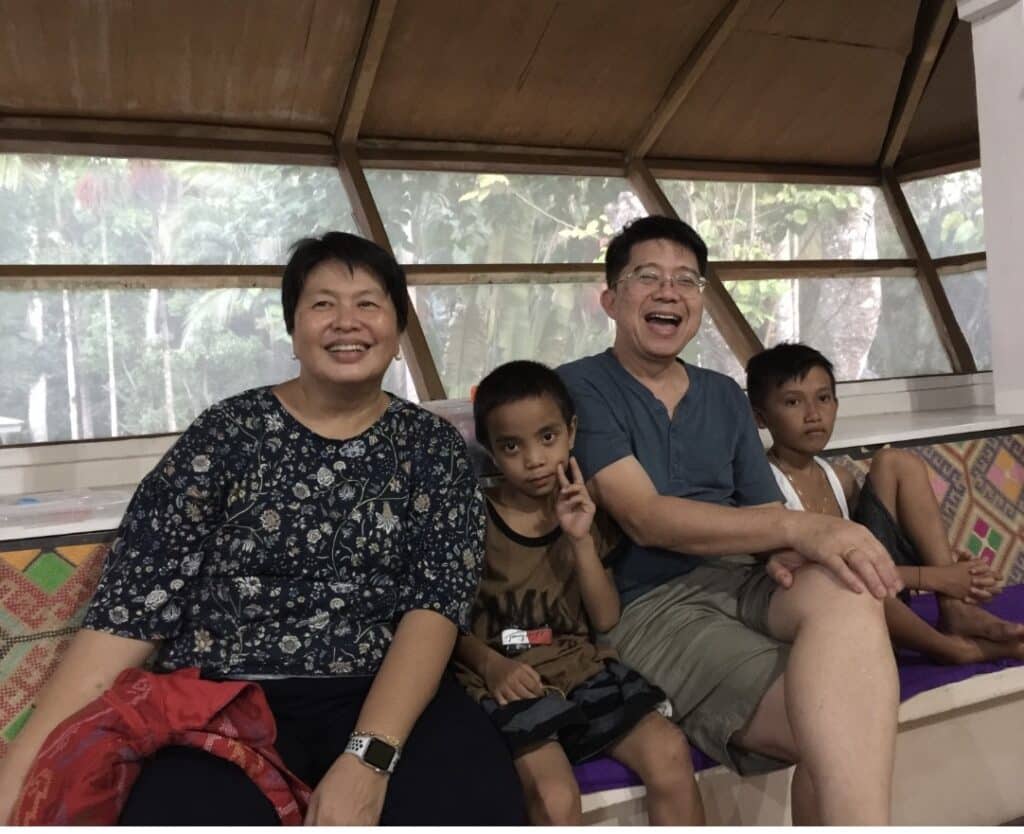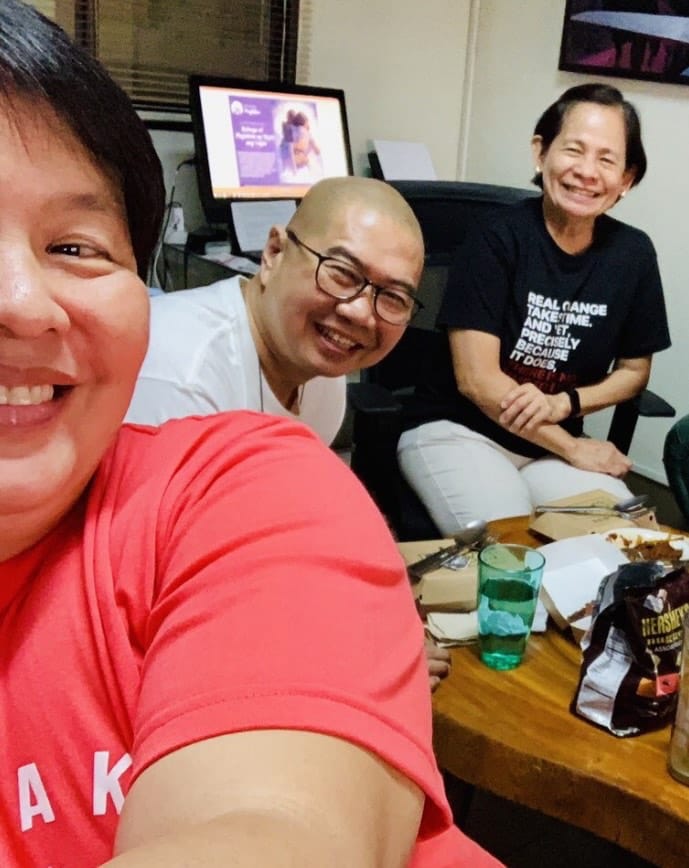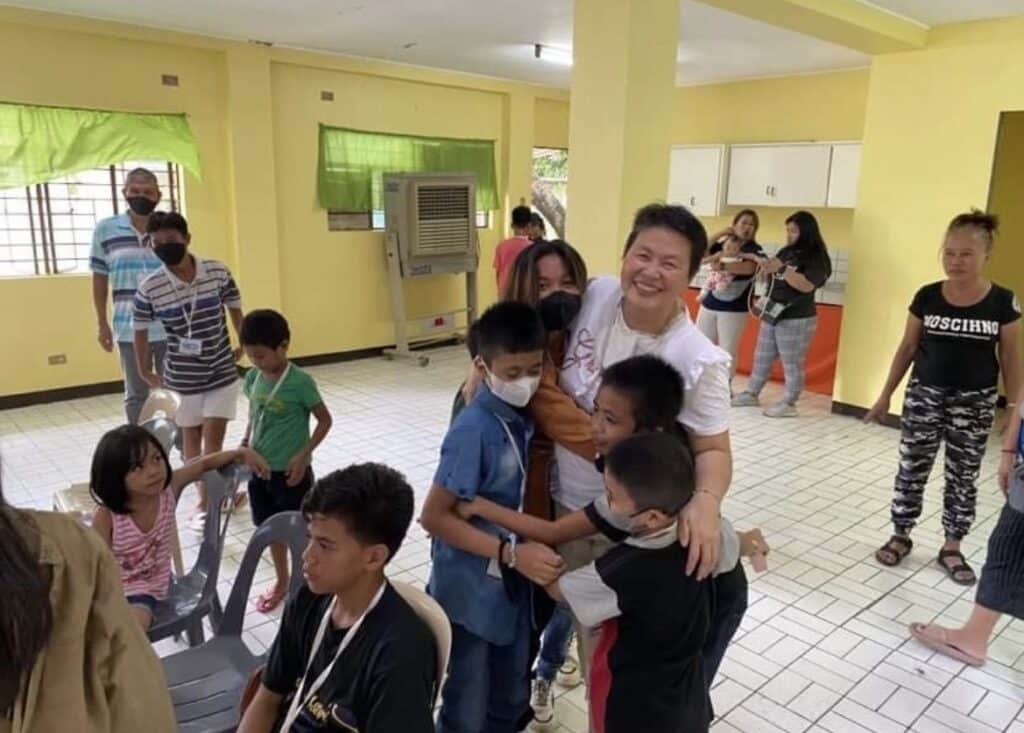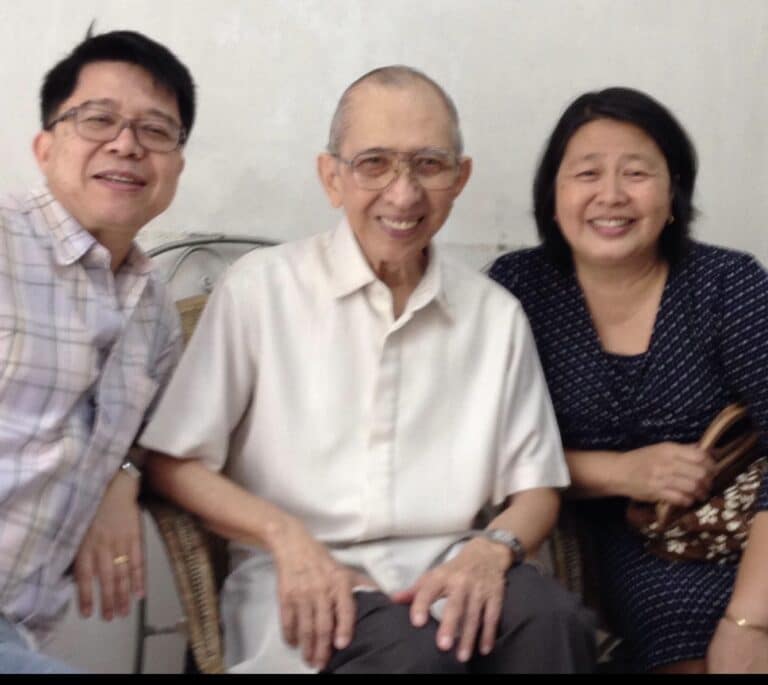By Nirva Delacruz
When you meet Edna Marie, more popularly known as Tin, what first strikes you about her is how she is like Little Miss Sunshine in the flesh. Across programs at the Foundation, from Program Paghilom to Bahay Kalinga, there’s hardly anyone who doesn’t know her. She has a motherly mien that welcomes friends and strangers alike. Her default pose is being in conversation with someone, probably with a hand lightly touching a teary-eyed mother’s arm or sharing a laugh with someone over some forbidden sweet. Spending five minutes with her, anyone can tell that her super power is to put people instantly at ease and to listen.
Complete strangers would approach her out of the blue to confide their heartaches to her in the most unlikely of circumstances—while waiting in line at the bank, at the picket line, in make-up rooms or in some busy café.
This is why it comes as no surprise that this spunky woman, who used to walk the streets as a student activist in the roaring 70s, is the resident “listening ear” of Arnold Janssen Kalinga Foundation. The calling to help process the wounds and burdens of others, as well as to share in their joys, seemed to follow her around.

‘It chose her’
You could say it all started as early as high school when schoolmates, who ran away from home, would go to her house, seeking refuge. Tin would call their mothers to let them know their children were in safe hands. Complete strangers would approach her out of the blue to confide their heartaches to her in the most unlikely of circumstances—while waiting in line at the bank, at the picket line, in make-up rooms or in some busy café.
She didn’t choose it, it chose her.
In an interview, Tin recalls one of the pivotal moments, which made her realize that she needed to take this “special power” more seriously. “While working for an NGO with fisherfolk as partners, I took a rest by the beach and a woman approached me, telling me about her sons’ attempt to kill their stepfather,” she shared. “I felt I needed to know what to say and what to avoid saying so I don’t make things worse for them.”
The simple nudges to learn more about how to guide people through their personal storms had happened even earlier. Tin and her husband Jobart enrolled in 1995 in a pastoral counseling course at the Ruben M. Tanseco, S.J. Center for Family Ministries Foundation, Inc. (CeFam) but left after a year without

finishing it. Sometime would pass before she decided to sign up for a family dynamics workshop. Husband and wife returned together to CeFam for a short course on “graceful aging”. And Tin’s mission took on more concrete form when she was invited to undergo apprenticeship with other students.
‘More meaningful journey’
Described as a “third-generation activist,” Tin was led by Divine Providence to become one of the lead facilitators in Program Paghilom, after initially wanting to help women suffering from post-abortion trauma heal. For her, it seemed like she was coming full circle, still advocating, still fighting for justice, but in a different way. “Taking care of the psychospiritual aspect of those left behind by the victims of EJK is important for me because it’s another form of activism—no longer just marching on the streets, writing about injustice and generally angry—this time, I was not on the streets with them, but on a more meaningful journey, and one of healing,” she explained.
Today Tin continues to be one of the core group members that drive Program Paghilom, helping build on the original psycho-spiritual intervention modules left by Anita Pecson, her mentor. Together with Program Paghilom Founder Fr. Flavie Villanueva, SVD and AJKFI Managing Director Tessam Castillo, she worked on new modules that factored in a national situationer, Filipino customs and beliefs about death and dying, and boundaries.

As long as there is someone whose heart needs a safe, warm place to heal, Tin will commit to stay on, serving some of the most ignored victims in Philippine society. Every story of pain is a story of triumph unfolding. To see that is what keeps her coming back. “What I would consider most fulfilling is meeting them again and seeing how they have adjusted to life without the victims, to see them help others as well.” Every refuge of healing always needs a little sunshine. ∎

